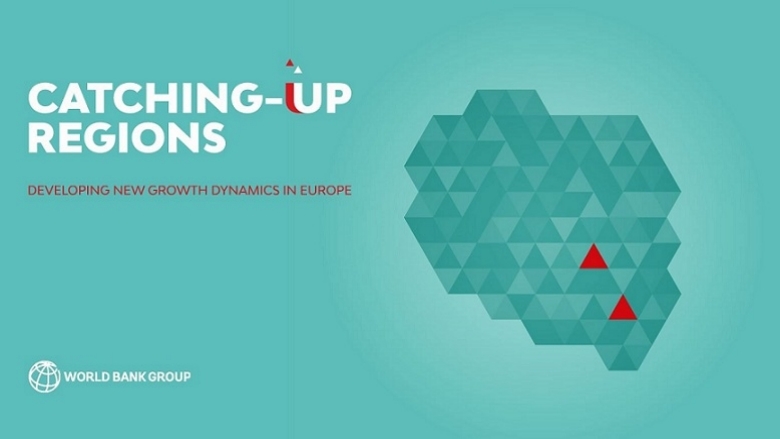Thematic parallel workshops:
Panel 1: Doing business made easier: three good reasons to set up your company and invest in Kielce and Rzeszow
· Maciej Drozd, Economist, World Bank
· Łukasz Piebiak, Undersecretary of State, Ministry of Justice
· Marianna Sidoroff, Deputy Director, Department of Digital Economy, Ministry of Economic Development
· Witold Olech, Head of Section I of the Register of Entrepreneurs of the National Court Register in Rzeszów
· Jacek Klocek, President of the District Court in Kielce
· Tomasz Tworek, Director, Świętokrzyskie Association of Private Employers - LEWIATAN
· Erich Unterwurzacher, Director, DG Regional and Urban Policy, European Commission
Moderator: Andrzej Rudka, Senior Advisor, DG GROW, European Commission
Workshop followed by Q&A session
According to the World Bank report on Doing Business 2016 it takes 30 days on average to start a business in Poland, which puts the country at the very tail of the EU Member States. In Swietokrzyskie and Podkarpackie, setting up a new enterprise requires even more time and determination: around 36 days are needed to register a limited liability company in Rzeszow and Kielce. By way of comparison, such a company is set up in Poznań within 8 days. This means that despite a single procedure at national level, administrative capacity to handle it is significantly lower in the two regions. The use of online registration also remains weak: even though they cost twice less and are four times faster, many entrepreneurs still prefer to complete a paper application instead of filing it electronically.
The "Lagging Regions" Initiative sought to improve entrepreneurship conditions in both regions by reducing time and cost required to start a company. It focused on three objectives: promoting online registration, decreasing the number of returned applications and expediting paper applications. According to the World Bank's estimations, a wider use of e-registration alone might decrease the cost of business registration in both regions by PLN 1,395,000 and cut its length by 13,020 days.
Panel 2: Harvesting business opportunities through efficient spatial planning: pilot scheme in Podkarpackie and Świętokrzyskie
· Paweł Wais, Deputy Director, Department of Regional Development, Marshal Office of Podkarpackie
· Leszek Kopeć, Mayor of Town and Municipality of Staszów
· Eugen Pănescu, Executive Manager, Planwerk
· Marcel Ionescu Heroiu, Senior Economist, World Bank
Moderator: Wolfgang Munch, Deputy Head of Unit, DG Regional and Urban Policy, European Commission
Workshop followed by Q&A session
The administrative burden related to the delivery of construction permits remains an important obstacle for investors in Poland. Around 70% of municipal territory has no local development plans, and for such areas construction permits are granted on the basis of one-off administrative decisions. Because of time and cost it takes to obtain such a decision, developers, particularly those with low administrative capacities such as SMEs, are quickly discouraged from investing. Weak capacity of local authorities to handle procedures in timely manner adds to the problem.
However, spatial planning presents myriad benefits. It does not only attract private investors by offering a clear overview of where and what can be developed, but it also offers the reduction of administrative burdens for investors and municipalities alike. It allows for better coordination of all investments done within a territory, more efficient access to public services and reduces urban sprawl.
The workshop aims to present the pilot scheme facilitated by "the Lagging Regions Initiative in the functional areas of Rzeszów and Staszów. The terms of reference for setting up land use plans in these territories are essential for gathering relevant expertise and creating state of the art spatial planning and increasing administrative capacities for timely issuing permits in municipalities. The pilots will lean on Integrated Urban Development Strategies and Mobility Plans that are already in place to deliver integrated investments in urban functional areas.
Panel 3: Use of financial instruments in catching-up regions - recycling 2007-13 financial instruments in an in-house management in Podkarpackie
· Jan Szczucki, Financial Expert, World Bank
· Danuta Cichoń, Director, Department of Regional Development, Marshal Office of Podkarpackie
· Krzysztof Staszewski, CEO, Podkarpackie Fund for Credit Guarantees
· Patrycja Wolińska-Bartkiewicz, Director, European Funds Section, National Economy Bank - Bank Gospodarstwa Krajowego
· Marek Ignor, President of the Board, Dolnośląskie Development Fund
Moderator: Rachel Lancry-Beaumont, Deputy Head of Unit, Financial Instruments Unit, DG Regional and Urban Policy, European Commission
Workshop followed by Q&A session
Financial instruments represent a resource-efficient way of deploying cohesion policy resources in pursuit of the Europe 2020 Strategy objectives. Besides the obvious advantages of recycling funds over the long term, financial instruments help to mobilise additional public or private co-investments in order to address market failures. Their delivery structures entail additional expertise and know-how, which helps to increase the efficiency and effectiveness of public resource allocation. Moreover, these instruments provide a variety of incentives to better performance, including greater financial discipline at the level of supported projects.
So far however, refundable support in the region of Podkarpackie presented a series drawbacks. There was a little product variation and the offered funding was insufficiently oriented to the needs of specific companies and industries. In addition, the refundable support was uniformly distributed across the region.
The workshop will present the established in-house instrument in the region of Podkarpackie based on recouped financial resources from the 2007-13 programming period that aims to respond to these challenges and provide tailor made offer of financial instruments in full complementarity with the reinforced use of financial instruments in 2014-20.
|
